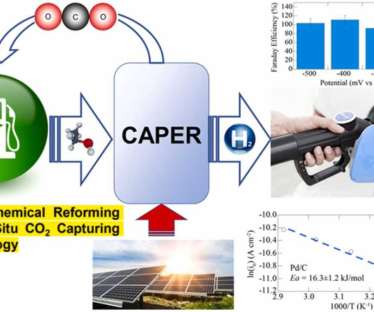WSU, GTI system uses electrochemical reforming of ethanol for compressed hydrogen production; CAPER
Green Car Congress
JUNE 12, 2022
A team from Washington State University (WSU) and the Gas Technology Institute have used an ethanol and water mixture and a small amount of electricity in an electrochemical conversion system to produce pure compressed hydrogen. We’re already using ethanol-containing gasoline at every gas station. 2022.118647.




























Let's personalize your content